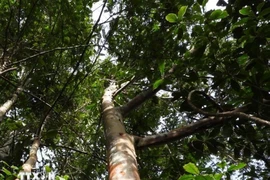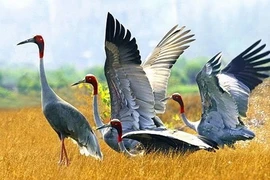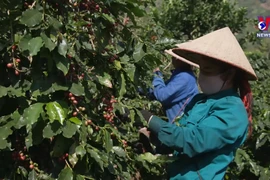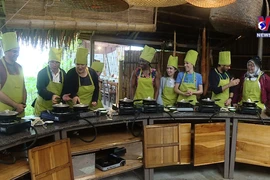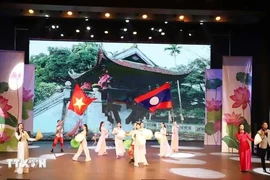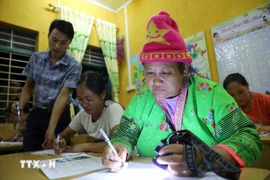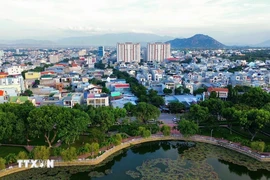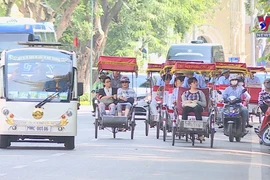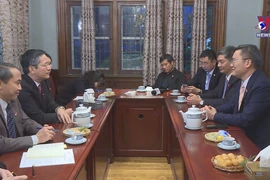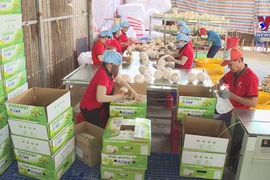Phùng Đình Giáp is the only artisan in Đông Khê village, Song Hồ commune, in Thuận Thành district, Bac Ninh province who still makes clay statues, a Vietnamese folk toy for kids during the Mid-Autumn Festival and also used in worship rituals.
In the old days, a set of clay statues, a star-shaped lantern, and a paper doctor were indispensable items on fruit trays at the Mid-Autumn Festival.
A traditional set of statues comprises five images - Buddha, an old man, a child, a turtle, and a bird - each of which has a meaning.
The process of making clay figurines requires a lot of steps. The main materials are clay and crepe paper. The clay must be dug from a depth of 2.5 meters to have the required smoothness and cleanliness. It is then dried, ground into powder, and put through a sieve to become smooth and cool. The crepe paper is soaked in water for seven days until it becomes soggy. After that, the clay powder is pounded and kneaded with the paper powder into a soft mixture, used to shape the statues.
After shaping, the statues are sun-dried and painted with a mixture of scallop shell powder, sticky rice paste, and water. The painted statues are sun-dried again and then coloured, primarily in white, black, yellow, blue, and red. Though the clay statues are not fired in a kiln, they are firm and durable.
The clay statues used to be popular toys during the Mid-Autumn Festival. Nowadays they are disappearing, however, because kids prefer modern toys. But in the last three years people have been coming back to order statues of Zodiac animals or in other shapes. This inspired the old artisan to sustain the legacy and pass his passion on to subsequent generations./.
